Джон Фаулз - The Tree
Здесь есть возможность читать онлайн «Джон Фаулз - The Tree» весь текст электронной книги совершенно бесплатно (целиком полную версию без сокращений). В некоторых случаях можно слушать аудио, скачать через торрент в формате fb2 и присутствует краткое содержание. Жанр: Современная проза, на английском языке. Описание произведения, (предисловие) а так же отзывы посетителей доступны на портале библиотеки ЛибКат.
- Название:The Tree
- Автор:
- Жанр:
- Год:неизвестен
- ISBN:нет данных
- Рейтинг книги:5 / 5. Голосов: 1
-
Избранное:Добавить в избранное
- Отзывы:
-
Ваша оценка:
- 100
- 1
- 2
- 3
- 4
- 5
The Tree: краткое содержание, описание и аннотация
Предлагаем к чтению аннотацию, описание, краткое содержание или предисловие (зависит от того, что написал сам автор книги «The Tree»). Если вы не нашли необходимую информацию о книге — напишите в комментариях, мы постараемся отыскать её.
The Tree — читать онлайн бесплатно полную книгу (весь текст) целиком
Ниже представлен текст книги, разбитый по страницам. Система сохранения места последней прочитанной страницы, позволяет с удобством читать онлайн бесплатно книгу «The Tree», без необходимости каждый раз заново искать на чём Вы остановились. Поставьте закладку, и сможете в любой момент перейти на страницу, на которой закончили чтение.
Интервал:
Закладка:
unpatriotic and immoral.
Art and nature are siblings, branches of the one tree, and nowhere more than in the continuing inexplicability of many of their processes, and above all those of creation and of effect on their respective audiences. Our approach to art, as to nature, has become increasingly scientized (and dreadfully serious) during this last century. It sometimes seems now as if it is principally there not for itself but to provide material for labeling, classifying, analysing — specimens for 'setting’, as I used to set moths and butterflies. This is of course especially true of — and pernicious in — our schools and universities. I think the first sign that I might one day become a novelist (though I did not then realize it) was the passionate detestation I developed at my own school for all those editions of examination books that began with a long introduction; an anatomy lesson that always reduced the original text to a corpse by the time one got to it, a lifeless demonstration of a preestablished proposition. It took me years to realize that even geniuses, the Shakespeares, the Racines, the Austens, have human faults.
Obscurity, the opportunity a work of art gives for professional explainers to show their skills, has become almost an aesthetic virtue; at another extreme the notion of art as vocation (that is, something to which one is genetically suited) is dismissed as non-scientific and inegalitarian. It is not a gift beyond personal choice, but one that can be acquired, like knowledge of science, by rote, recipe and hard work. Elsewhere we become so patterned and persuaded by the tone of the more serious reviewing of art in our magazines and newspapers that we no longer notice their overwhelmingly scientific tone, or the paradox of this knowing-naming technique being applied to a non-scientific object — one whose production the artist himself cannot fully explain, and one whose effect the vast majority of the non — reviewing audience do not attempt to explain.
The professional critic or academic would no doubt say this is mere ignorance, that both artists and audiences have to be taught to understand themselves and the object that links them, to make the relationship articulate and fully conscious; defoliate the wicked green man, hunt him out of his trees. Of course there is a place for the scientific, or quasi-scientific, analysis of art, as there is (and far greater) for that of nature. But the danger, in both art and nature, is that all emphasis is placed on the created, not the creation.
All artefacts, all bits of scientific knowledge, share one thing in common: that is, they come to us from the past, they are relics of something already observed, deduced, formulated, created, and as such qualify to go through the Linnaean and every other scientific mill. Yet we cannot say that the ‘green’ or creating process does not happen or has no importance just because it is largely private and beyond lucid description and rational analysis. We might as well argue that the young wheat-plant is irrelevant because it can yield nothing to the miller and his stones. We know that in any sane reality the green blade is as much the ripe grain as the child is father to the man. Nor of course does the simile apply to art alone, since we are all in a way creating our future out of our present, our ‘published’ outward behaviour out of our inner green being. One main reason we may seldom feel this happening is that society does not want us to. Such random personal creativity is offensive to all machines.
I began this wander through the trees — we shall come to them literally, by the end — in search of that much looser use of the word ‘art' to describe a way of knowing and experiencing and enjoying outside the major modes of science and art proper. . a way not concerned with scientific discovery and artefacts, a way that is internally rather than externally creative, that leaves very little public trace, and yet which for those very reasons is almost wholly concentrated in its own creative process. It is really only the qualified scientist or artist who can escape from the interiority and constant nowness, the green chaos of this experience, by making some aspect of it exterior and so fixing it in past time, or known knowledge. Thereby they create new, essentially parasitical orders and categories of phenomena that in turn require both a science and an art of experiencing.
But nature is unlike art in terms of its product — what we in general know it by. The difference is that it is not only created, an external object with a history, and so belonging to a past; but also creating in the present, as we experience it. As we watch, it is so to speak rewriting, reformulating, repainting, rephotographing itself. It refuses to stay fixed and fossilized in the past, as both the scientist and the artist feel it somehow ought to; and both will generally try to impose this fossilization on it.
Verbal tenses can be very misleading here: we stick adamantly in speech to the strict protocol of actual time. Of and in the present we speak in the present, of the past in the past. But our psychological tenses can be very different. Perhaps because I am a writer (and nothing is more fictitious than the past in which the first, intensely alive and present, draft of a novel goes down on the page), I long ago noticed this in my naturalist self: that is, a disproportionately backward element in any present experience of nature, a retreat or running-back to past knowledge and experience, whether it was the definite past of personal memory or the indefinite, the imperfect, of stored ‘ological' knowledge and proper scientific behaviour. This seemed to me often to cast a mysterious veil of deadness, of having already happened, over the actual and present event or phenomenon.
I had a vivid example of it only a few years ago in France, long after I thought I had grown wise to this self-imposed brain-washing. I came on my first Soldier Orchid, a species I had long wanted to encounter, but hitherto never seen outside a book. I fell on my knees before it in a way that all botanists will know. I identified, to be quite certain, with Professors Clapham, Tutin and Warburg in hand (the standard British Flora), I measured, I photographed, I worked out where I was on the map, for future reference. I was excited, very happy, one always remembers one's firsts’ of the rarer species. Yet five minutes after my wife had finally (other women are not the only form of adultery) torn me away, I suffered a strange feeling. I realized I had not actually seen the three plants in the little colony we had found. Despite all the identifying, measuring, photographing, I had managed to set the experience in a kind of present past, a having-looked, even as I was temporally and physically still looking. If I had the courage, and my wife the patience, I would have asked her to turn and drive back, because I knew I had just fallen, in the stupidest possible way, into an ancient trap. It is not necessarily too little knowledge that causes ignorance, possessing too much, or wanting to gain too much, can produce the same result.
There is something in the nature of nature, in its presentness, its seeming transience, its creative ferment and hidden potential, that corresponds very closely with the wild, or green man, in our psyches, and it is a something that disappears as soon as it is relegated to an automatic pastness, a status of merely classfiable thing, image taken then. ‘Thing’ and 'then' attract each other. If it is thing, it was then; if it was then, it is thing. We lack trust in the present, this moment, this actual seeing, because our culture tells us to trust only the reported back, the publicly framed, the edited, the thing set in the clearly artistic or the clearly scientific angle of perspective. One of the deepest lessons we have to learn is that nature, of its nature, resists this. It waits to be seen otherwise, in its individual presentness and from our individual presentness.
Читать дальшеИнтервал:
Закладка:
Похожие книги на «The Tree»
Представляем Вашему вниманию похожие книги на «The Tree» списком для выбора. Мы отобрали схожую по названию и смыслу литературу в надежде предоставить читателям больше вариантов отыскать новые, интересные, ещё непрочитанные произведения.
Обсуждение, отзывы о книге «The Tree» и просто собственные мнения читателей. Оставьте ваши комментарии, напишите, что Вы думаете о произведении, его смысле или главных героях. Укажите что конкретно понравилось, а что нет, и почему Вы так считаете.

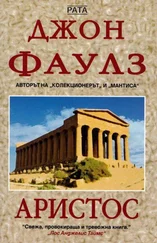
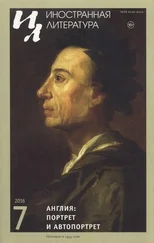
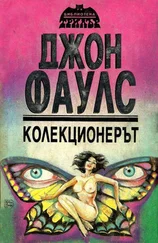
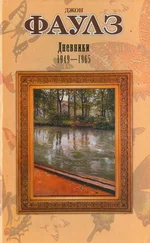

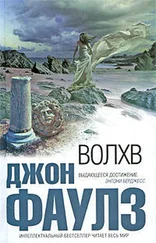
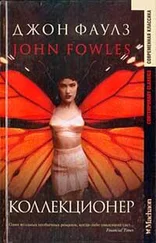
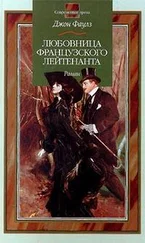
![Джон Фаулз - Вылазка в действительность [антология]](/books/431648/dzhon-faulz-vylazka-v-dejstvitelnost-antologiya-thumb.webp)
![Джон Фаулз - Мантисса [litres]](/books/438194/dzhon-faulz-mantissa-litres-thumb.webp)